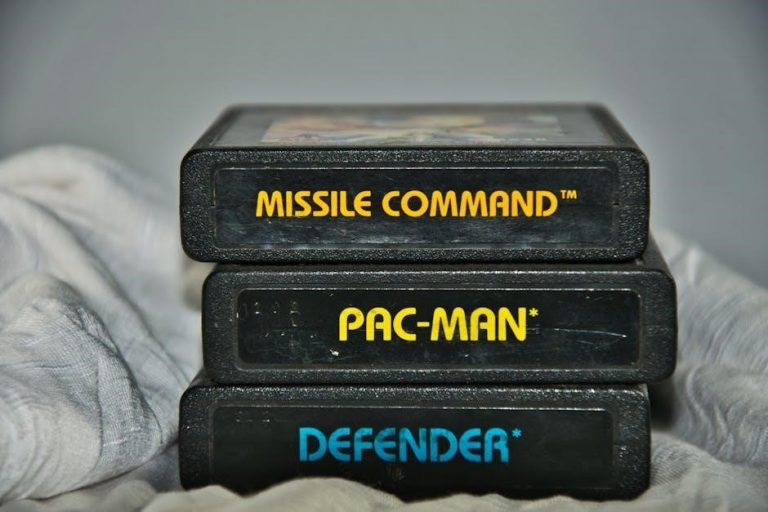
The Noncommissioned Officer Guide serves as a comprehensive tool for understanding the roles, responsibilities, and professional development of NCOs, essential for effective leadership and service.
Overview of the Role and Importance of NCOs
NCOs are the backbone of the military, bridging officers and enlisted personnel. They provide leadership, mentorship, and training, ensuring discipline and standards are upheld. Their role is crucial in military operations, professional development, and fostering unit cohesion. NCOs are responsible for executing missions effectively while guiding junior soldiers. Their expertise and experience make them indispensable in maintaining operational readiness and adapting to modern challenges, ensuring the military’s success in dynamic environments.
Historical Context and Evolution of the NCO Corps
The NCO Corps traces its roots to early military formations, evolving over centuries to become a cornerstone of modern armed forces. Historically, NCOs emerged as experienced leaders who could execute commands and maintain discipline. Over time, their roles expanded to include mentorship and training, reflecting the growing complexity of military operations. Today, NCOs are pivotal in adapting to technological advancements and global challenges, ensuring their legacy endures through continuous development and leadership.

Key Responsibilities and Duties
NCOs are responsible for leading, training, and mentoring junior soldiers, enforcing discipline, and executing mission-critical tasks, ensuring unit readiness and operational success in all environments.
Leadership and Mentorship Roles
NCOs play a vital role in leading by example, inspiring, and guiding soldiers to achieve their full potential. They foster professional development through mentorship, creating a supportive environment for growth. Effective leadership ensures unit cohesion and mission success, while mentorship builds confidence and competence in junior soldiers, reinforcing the NCO Corps’ backbone role in military operations and organizational effectiveness.
Training and Development of Junior Soldiers
NCOs are instrumental in training and developing junior soldiers through structured programs and hands-on experience. They ensure soldiers master essential skills, adhere to standards, and prepare for future challenges. This role is crucial for building a competent and capable force, with NCOs serving as both educators and role models, fostering growth and readiness within the military ranks and beyond.
Discipline and Standards Enforcement
NCOs play a critical role in maintaining discipline and enforcing military standards. They ensure soldiers adhere to regulations, promoting accountability and professionalism. Through consistent guidance and corrective training, NCOs foster a culture of compliance, reinforcing the importance of ethical behavior and operational readiness. Their leadership ensures unit cohesion and the upholdment of core values, essential for mission success and organizational integrity.
Professional Development for NCOs
Professional development for NCOs involves continuous training, mentorship, and education to enhance leadership skills and adaptability, ensuring they meet evolving challenges and maintain high standards of excellence.
Education and Training Opportunities
NCOs benefit from structured education and training programs, including leadership courses, professional certifications, and continuous learning initiatives. These opportunities enhance leadership skills, technical knowledge, and problem-solving abilities, ensuring NCOs remain effective in dynamic environments. Programs like the NCO Education System and Advanced Leadership Courses provide practical training, equipping NCOs with the tools to excel in their roles and adapt to modern challenges.
Leadership Courses and Certifications
NCOs access various leadership courses and certifications tailored to enhance their command capabilities. Programs like the Basic Leader Course and Advanced Leader Course focus on developing decision-making, communication, and tactical skills. Certifications such as the Army’s NCO Professional Development Ribbon recognize completed training, ensuring NCOs are well-equipped to lead effectively in diverse military environments and scenarios.
Continuous Learning and Skill Improvement
Continuous learning is vital for NCOs to stay updated on modern military demands. They engage in ongoing education through resources like field manuals and institutional training. This adaptability ensures they remain proficient in new technologies and strategies. By prioritizing skill improvement, NCOs enhance their leadership capabilities and contribute to mission effectiveness. Lifelong learning fosters readiness and excellence in their roles.
Ethics and Professional Standards
Ethics and professional standards are foundational to NCOs, emphasizing core values, accountability, and moral decision-making. These principles guide their conduct, ensuring integrity and trust in leadership roles.
Core Values and Code of Conduct
The core values of loyalty, duty, respect, selfless service, honor, integrity, and personal courage form the bedrock of an NCO’s code of conduct. These principles ensure ethical decision-making, fostering trust and discipline within military operations. Adherence to these values is non-negotiable, guiding NCOs in their leadership roles and interactions with soldiers and civilians alike.
Accountability and Responsibility
NCOs are held to the highest standards of accountability, ensuring their actions align with military values and regulations. They are responsible for upholding discipline, leading by example, and making ethical decisions. Their accountability extends to the well-being and performance of their teams, fostering a culture of trust and reliability. Ethical behavior and transparency are non-negotiable in their leadership roles.
Moral and Ethical Decision-Making
NCOs must consistently demonstrate moral and ethical decision-making, adhering to the core values of their organization. They are trained to analyze situations critically, considering both immediate and long-term consequences. Ethical judgment is crucial in maintaining trust and integrity, ensuring that decisions align with established codes of conduct and promote a positive, respectful environment within their units and beyond.

Communication and Teamwork
Effective communication and teamwork are vital for NCOs, fostering collaboration and ensuring clear direction within units. Strong interpersonal skills enhance leadership and mission success.
Effective Communication Strategies
Effective communication strategies for NCOs involve active listening, clear messaging, and adaptability. Leaders must tailor their approach to diverse audiences, ensuring clarity and understanding. Active listening builds trust, while precise communication prevents misunderstandings. NCOs should leverage standardized methods, such as briefings and debriefs, to maintain consistency; Additionally, cross-cultural communication skills are essential in global operations, fostering collaboration and mutual respect. These strategies enhance teamwork and mission success.
Building and Leading Teams
Building and leading teams is a cornerstone of NCO responsibilities, fostering a positive environment that encourages collaboration and shared goals. NCOs lead by example, promoting accountability and resilience. They empower team members to contribute effectively, ensuring cohesion and mutual respect. Continuous improvement and adaptability are key, as teams evolve to meet challenges. The NCO Guide emphasizes these qualities, ensuring teams thrive under strong, principled leadership, driving mission success and organizational growth.
Conflict Resolution Techniques
Conflict resolution is a critical skill for NCOs, ensuring issues are addressed promptly and fairly. Techniques include active listening, mediation, and fostering open communication. NCOs identify root causes, remain impartial, and guide resolution respectfully. Effective conflict management strengthens team cohesion, maintains discipline, and enhances mission readiness. The NCO Guide emphasizes these methods to promote a positive, productive environment, ensuring conflicts are resolved constructively and efficiently.
Decision-Making and Problem-Solving
NCOs rely on critical thinking and analysis to make timely, informed decisions. Effective problem-solving skills enable them to address challenges efficiently, ensuring mission success and team effectiveness.
Critical Thinking and Analysis
Critical thinking is a cornerstone of NCO decision-making, enabling them to analyze complex situations, evaluate information, and identify biases. NCOs use logical reasoning to break down problems, assess risks, and develop effective solutions. Strong analytical skills ensure informed decisions align with mission goals and ethical standards, fostering adaptability in dynamic environments and enhancing overall leadership effectiveness.
Adaptability in Dynamic Situations
Adaptability is crucial for NCOs in rapidly changing environments, enabling them to pivot strategies and maintain mission focus. NCOs must remain flexible, assess evolving situations, and make swift, informed decisions. This skill ensures resilience under uncertainty, fostering cohesion and trust within teams. By staying proactive and resourceful, NCOs navigate unpredictable scenarios effectively, upholding operational success and organizational objectives.
Strategic Planning and Execution
Strategic planning and execution are vital for NCOs to align actions with organizational goals. NCOs translate higher-level plans into actionable steps, ensuring mission success. They balance operational and administrative responsibilities, fostering collaboration and resource allocation. By integrating strategic priorities, NCOs drive effective execution, adapting plans as needed while maintaining focus on long-term objectives and organizational excellence.
Recent Developments in NCO Roles
Modern NCO roles emphasize adaptability, technology integration, and global leadership, reflecting evolving military needs and strategic priorities in a dynamic operational environment.
Modern Challenges and Opportunities
NCOs face evolving challenges, including cybersecurity threats, global operations, and cross-cultural leadership demands. These challenges also present opportunities for professional growth, innovation, and enhanced leadership capabilities in dynamic environments.
Integration of Technology and Innovation
Technology integration is crucial for NCOs, enhancing operational efficiency and decision-making. Innovation in tools and training enables NCOs to adapt to modern threats and lead effectively in technologically advanced environments.
Global Operations and Cross-Cultural Leadership
NCOs play a critical role in global operations, requiring cultural awareness and adaptability. Leading diverse teams across borders demands understanding of local customs and values. Effective cross-cultural leadership fosters collaboration and mission success, ensuring respect and cohesion in multinational environments.

Community and Engagement
NCOs strengthen connections between the military and civilian communities through public relations, outreach, and supporting families, veterans, ensuring strong community ties and mutual understanding.
NCO Involvement in Military Communities
NCOs play a vital role in fostering connections within military communities by organizing events, supporting local initiatives, and fostering camaraderie. They also contribute to the well-being of families and veterans, strengthening overall community ties. Their involvement in public relations and outreach helps bridge military and civilian interactions, promoting understanding and cooperation. This engagement is essential for building trust and mutual respect.
Support for Families and Veterans
NCOs are instrumental in providing support to military families and veterans through resources, counseling, and community programs. They help families navigate challenges, offering guidance on education, healthcare, and financial planning. Additionally, NCOs advocate for veterans’ welfare, ensuring access to benefits and services. Their dedication strengthens community resilience and enhances the overall quality of life for service members and their families.
Public Relations and Outreach
NCOs play a vital role in public relations and outreach, fostering positive community interactions and transparency. They engage in media relations, organize community events, and educate the public about military roles. NCOs also collaborate with local organizations to build trust and understanding. Their efforts enhance the military’s image and strengthen civilian-military relationships, ensuring public support and awareness of military contributions.

Cybersecurity and Digital Literacy
Cybersecurity is critical for NCOs to protect military assets and data from threats; Understanding risks and implementing best practices ensures secure communication and operational integrity in digital environments.
Protecting Military Assets and Data
Protecting military assets and data is a critical responsibility for NCOs, ensuring operational security and integrity. Encryption, secure communication protocols, and regular audits safeguard sensitive information. NCOs must enforce strict access controls and train personnel to recognize and mitigate cyber threats. Proactive measures, such as multi-factor authentication and software updates, are essential to prevent breaches and maintain trust in military systems and infrastructure.
Understanding Cyber Threats and Risks
Understanding cyber threats and risks is vital for NCOs to safeguard military operations. Threats include phishing, malware, and ransomware, which target sensitive data. NCOs must identify vulnerabilities, implement security protocols, and educate personnel on threat recognition. Proactive measures, such as regular system updates and cyber awareness training, are essential to mitigate risks and ensure mission continuity in an increasingly digital battlefield environment.
Best Practices for Secure Communication
Secure communication is critical for NCOs to protect sensitive information. Best practices include using encrypted channels, verifying identities, and avoiding unsecured networks. Regular training on encryption tools and protocols ensures compliance with security standards. Additionally, NCOs should enforce strict access controls and monitor for suspicious activities to maintain operational security and prevent data breaches in all communications.
The Noncommissioned Officer Guide emphasizes the critical role of NCOs in leadership, mentorship, and maintaining high standards. Their adaptability and commitment to excellence are vital for future success.
Future of the NCO Corps
The future of the NCO Corps lies in adapting to modern challenges, integrating technology, and fostering leadership development. With the NCOPDS framework, NCOs will be equipped to lead in global operations, embrace cross-cultural leadership, and prioritize cybersecurity. Continuous learning and adaptability will ensure NCOs remain pivotal in shaping the military’s future, emphasizing strategic planning and ethical decision-making in dynamic environments.
Final Thoughts on Leadership and Service
Leadership and service are the cornerstone of the NCO Corps, emphasizing mentorship, accountability, and integrity. NCOs must lead by example, fostering a culture of continuous improvement and ethical decision-making. Their role in shaping future leaders and maintaining high standards ensures the military’s effectiveness and readiness. The NCO Corps remains vital in inspiring loyalty, discipline, and resilience, embodying the values that define military excellence and service to the nation.




